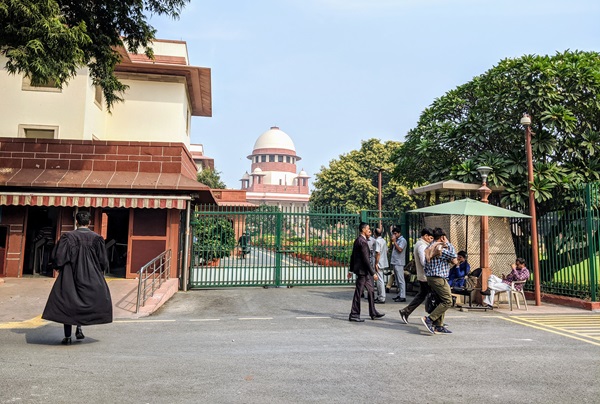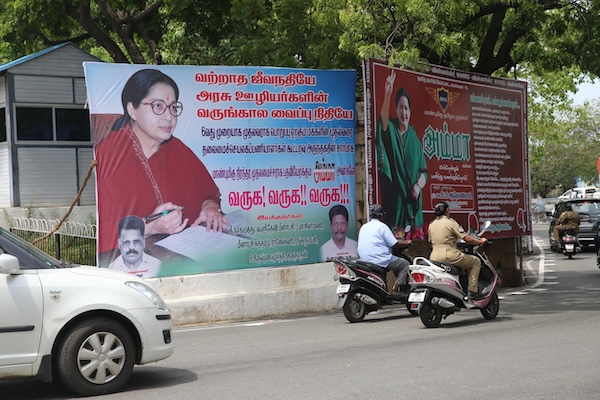.png)

Dr. Srinath Sridharan is a Corporate Advisor & Independent Director on Corporate Boards. He is the author of ‘Family and Dhanda’.
May 5, 2025 at 7:41 AM IST
The Supreme Court’s decision to overturn JSW Steel’s acquisition of Bhushan Power and Steel stands as a textbook example of the law prevailing at the expense of justice. It reflects a pristine legalism that discounts the practicalities of commerce, investment confidence and the sanctity of concluded transactions. In a world where predictability is the bedrock of capital allocation, this judgment unsettles more than it settles. That the resolution has been struck down years after JSW assumed ownership, infused capital, and operationally revitalised the company is a deeply disquieting signal to the investor community and to those who believed in the promise of India’s insolvency framework.
To be sure, the Court is within its remit to uphold the letter of the law. The flaws it pointed to are not insignificant. The NCLAT’s overreach into technical areas and the passive posture adopted by the Committee of Creditors have both contributed to the procedural dilution of the process. There were clear shortcomings on the part of the acquirer as well. Delays in meeting payment obligations to operational creditors and a lag in bringing in capital cannot be glossed over. Yet, the question must be asked — where was the alternative? Were there other credible bidders waiting in the wings? Were the interests of creditors better served by returning the company to liquidation? Is the commercial cost of this legal correction proportionate or justified?
What has been delivered may be legally sound but it is difficult to term it as fair in a wider economic sense. The injustice is not just to JSW Steel but to the very spirit of enterprise that the IBC was designed to encourage. It is a sobering reminder that even completed resolutions with operational handovers and renewed supply chains can be invalidated. This does not merely disrupt a single transaction but endangers the foundational trust that underpins the market for distressed assets in India.
More unsettling is what this high-profile case reveals about the broader judicial and institutional landscape. If this is the outcome after five years in a matter involving marquee players, what hope can there be for the thousands of cases lying unresolved in our judicial corridors. Justice delayed is justice denied is no longer a philosophical lament but an operational risk. For every Bhushan Power, there are countless smaller insolvency and all other pending litigation cases where livelihoods, savings, businesses and even reputation hang in the balance indefinitely.
This episode must trigger a hard rethink on how the IBC is structured, governed and implemented. The roles and responsibilities of the Committee of Creditors cannot remain unexamined. Banks and financial institutions must be held to higher disclosure and diligence standards when they make or delay critical decisions. Resolution professionals need clearer operational autonomy but also stricter accountability. The IBC process must be tightened to prevent its own timelines from becoming a form of self-sabotage. Legal sanctity must coexist with commercial sense or the Code will fail its original mandate.
India also needs to address the lack of commercial acumen in insolvency decisions. There is a fundamental difference between commercial decisions taken by bankers and those guided by commercial acumen. Bankers, by design, are trained to minimise risk and follow established compliance routes. Commercial acumen, however, entails taking informed calls on value creation, long-term viability and sectoral understanding. The IBC ecosystem must recognise this gap and find renewed mechanisms to embed independent commercial wisdom into the process. Resolution decisions worth thousands of crores cannot be left solely to institutions whose incentive structures are designed around loan recovery rather than asset revival.
It is also time to build in safe harbour protections for resolution applicants who act in good faith and have materially fulfilled their obligations. No system should allow a scenario where a transaction is reversed after years of integration, investment and operational turnaround. The principle of finality is not a procedural luxury. It is a vital precondition for attracting credible bidders into distressed markets. Without it, the IBC will become a legal labyrinth rather than a resolution mechanism.
Equally important is the need for deeper reforms in how Committees of Creditors are constituted. A handful of banks, often with divergent exposure levels and no deep operational knowledge of the business operations in question, cannot be expected to craft sophisticated asset recovery plans. The introduction of independent professionals, outside of RPs, into CoC structures for high-value resolutions could lend both credibility and depth to their evaluations. Similarly, resolution professionals need more than legal know-how. They need operational insight, sectoral understanding and most essentially, the confidence and the backing of institutional capacity that goes beyond paperwork.
JSW Steel now faces a narrow and procedurally constrained path. It may choose to file a review petition before the same bench within thirty days, but the scope of such a remedy is exceptionally limited. A review is not a second hearing in disguise—it is reserved solely for correcting manifest errors or considering newly-discovered evidence that was unavailable despite due diligence. Should the review be declined, the door to a curative petition remains technically open, though rarely successful. In parallel, JSW may also explore participating in the liquidation process, an unpalatable but legally permissible route to retain control of Bhushan Power. None of these options, however, can undo the reputational and commercial damage already inflicted by this prolonged and disquieting legal denouement.
The consequences of this judgment will travel far beyond the corridors of Bhushan Power. It sends a mixed signal to global investors evaluating India’s distressed asset space. If years after resolution a deal can be undone on procedural grounds, the risk premium demanded for Indian exposures will rise sharply.
For the IBC to remain a beacon of reform, it must evolve beyond a legal instrument into a robust institution of economic justice. That requires not just interpretation but imagination, not just procedure but foresight. India cannot afford to compromise its image as a jurisdiction that respects finality, especially at a time when the world is looking for reliable destinations for capital deployment.




